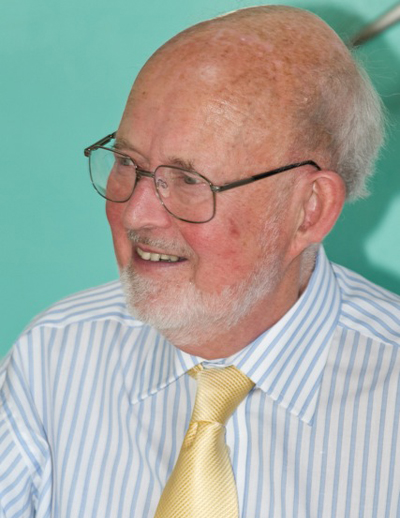John Alfred Bather, Emeritus Professor of Mathematical Statistics at the University of Sussex, died on September 7, 2012 at the age of 76, after suffering from myeloma. He was well known in both Europe and North America for his work on dynamic programming and decision theory.
John was born on January 20, 1936. He attended Burnley Grammar School, then the University of Cambridge, after a period of National Service in the Navy. He first met Statistics, alongside John Kingman, in lectures and supervisions from Dennis Lindley: the course was entitled “Random Variables”, to circumvent Sir Harold Jeffreys’ insistence that Cambridge courses with “probability” in the title be based on his own book.
After Lindley moved away, the Statistics staff in Cambridge consisted of Maurice Walker, Violet Cane and Peter Whittle, tucked away in the basement of the Chemistry Building. As a smoking research student, Bather shared an office with Hilton Miller; the non-smokers—Kingman, Bob Loynes and Roger Miles—occupied another. When Whittle moved to Manchester University in 1961, Bather went with him. His PhD entitled “The optimal control of stochastic processes” was awarded in 1963; his first published papers were on optimal regulation policies for dams. He spent 1964/5 on leave at Stanford University, working with Hermann Chernoff on sequential decisions when controlling a space ship.
In 1967, Bather moved to Sussex University, for the rest of his career. When Kingman, then Professor at Sussex, moved to Oxford, recommendations from Whittle and George Barnard persuaded the search committee to promote Bather to Professor of Statistics in 1969; he did not retire from teaching until 2003. He was Departmental Chairman, served on major university committees, and chaired the UK-wide Committee of Professors of Statistics for three years. He headed the Royal Statistical Society’s Library Committee for several years, and was an Academic Assessor on Appointment Boards for the Statistical class in the Civil Service.
He guided eleven students to a PhD, and the fifty or so academic articles published under his name show joint work with a dozen other researchers. In 1973, he spent four months at the Technion in Haifa. After the European Meeting of Statisticians held at Sussex in 1980, he obtained a Leverhulme Fellowship to work on the sequential design of experiments, seeking the best of several treatments for a particular disease. His read paper [1] assesses the work of the previous thirty years in that area. During that year, he worked with Chernoff again, with Bert Fristedt at Minnesota, and colleagues at Oxford, Cambridge and various European universities.
He hosted visits by Gordie Simons from Chapel Hill in 1982/3, and John Petkau from Vancouver 1986/7; those collaborations continued when Bather visited North America again in 1987/8, working also with Chernoff at Harvard.
He ranged widely over theoretical statistics, with special emphasis on sequential decision problems. He also wrote about control charts, optimal stopping, oil exploration models, the secretary problem, clinical trials, and auditing. His papers are characterized by their thoroughness and completeness; he preferred to work an idea fully through, rather than publish a succession of developing results. He was an obvious choice to honour Chernoff by conducting the ‘conversation’ published as [2].
From 1996, he collaborated with a Sussex colleague, Derek Atherton, on problems related to the capacity of human pilots to effectively use the capabilities of modern military aircraft. His book [3] is based on his popular and successful lecture course.
While still at Cambridge, he married June Smith: they had grown up together in Burnley. They were married for almost 53 years, but June, who cared for him during the four years of his illness, died suddenly just one week before him. They had three sons: Mark died in a road accident abroad, but John was delighted that both Steven and Nick provided him with grandchildren. He was an accomplished piano player: once, when he played the piano in a lecture theatre while the students were completing their end-of-term questionnaires, he was admonished for “seeking to exercise improper influence”! (His integrity was exemplified when, supplementing his salary by marking public examination scripts in his youth, he alerted his overseer to the fact that he had inadvertently been sent the script of his own cousin.) He served as a Governor of the school his sons attended, and closely followed the fortunes of Burnley at soccer, and Lancashire at cricket.
Written by John Haigh, University of Sussex
—
[1] (1981) ‘Randomised allocation of treatments in sequential experiments’ (with discussion), J. Roy. Statist. Soc. B 43, 265–292.
[2] (1996) ‘A conversation with Hermann Chernoff’, Statistical Science 11, 335–350.
[3] (2000) Decision Theory: An Introduction to Dynamic Programming and Sequential Decisions. Wiley.

Comments on “Obituary: John Bather 1936–2012”